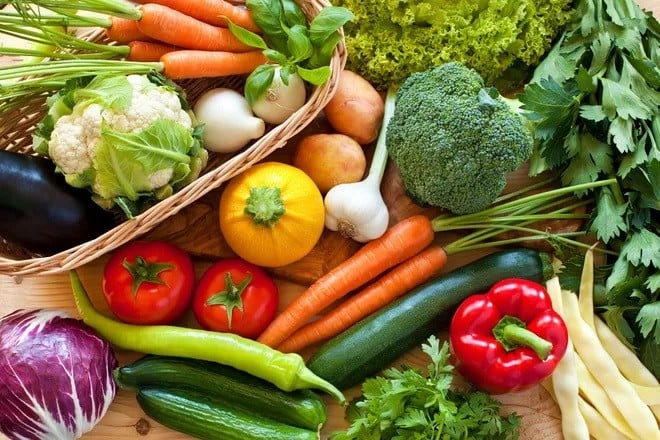 |
| Raw vegetables can actually retain their nutrients to the maximum. (Source: Getty Images) |
Nowadays, many people pursue the concept of fresh and nutritious food, replacing fish and meat with vegetable salad... They believe that eating raw vegetables not only retains more nutrients but also allows them to enjoy the original flavor of the dish.
The following article by Dr. Bian Huawei, Head of the Department of Clinical Nutrition, Sun Yat-sen University Affiliated Hospital, China analyzes this.
Vegetables are a source of fiber, minerals, vitamins, and antioxidants. Raw vegetables actually retain their nutrients at their maximum level.
However, not all vegetables can be eaten raw and some nutrients require high temperatures for better absorption by the body.
There are two types of vegetables that are harmful to health when eaten raw. One is vegetables that are high in oxalic acid.
Oxalic acid will react with calcium, magnesium and other minerals to form insoluble precipitates, affecting the absorption of minerals. In the long term, oxalic acid will also increase the risk of urinary tract stones and kidney stones.
Cooking vegetables properly can remove some of the oxalic acid present. An experiment was done where spinach and amaranth were boiled in clean water. The higher the water temperature, the lower the oxalic acid content.
Therefore, vegetables with high oxalic acid content such as water spinach, amaranth, and celery are not suitable for eating raw but should be processed with heat.
The other type is poisonous vegetables such as kidney beans (containing saponins and phytohemagglutinin). If eaten raw, these can cause nausea, vomiting and other symptoms, and in severe cases, death. However, this toxin can be destroyed by heating.
In addition, from a food safety perspective, raw vegetables contain a lot of pesticide residues and pathogenic bacteria, which can easily cause digestive discomfort.
Source


![[Photo] Training the spirit of a Navy soldier](https://vstatic.vietnam.vn/vietnam/resource/IMAGE/2025/3/29/51457838358049fb8676fe7122a92bfa)


![[Photo] Schools and students approach digital transformation, building smart schools](https://vstatic.vietnam.vn/vietnam/resource/IMAGE/2025/3/29/9ede9f0df2d342bdbf555d36e753854f)


























![[Photo] President Luong Cuong hosts state reception for Brazilian President Luiz Inacio Lula da Silva](https://vstatic.vietnam.vn/vietnam/resource/IMAGE/2025/3/28/56938fe1b6024f44ae5e4eb35a9ebbdb)
![[Photo] Flower cars and flower boats compete to show off their colors, celebrating the 50th anniversary of Da Nang Liberation Day](https://vstatic.vietnam.vn/vietnam/resource/IMAGE/2025/3/28/086d6ece3f244f019ca50bf7cd02753b)































































Comment (0)